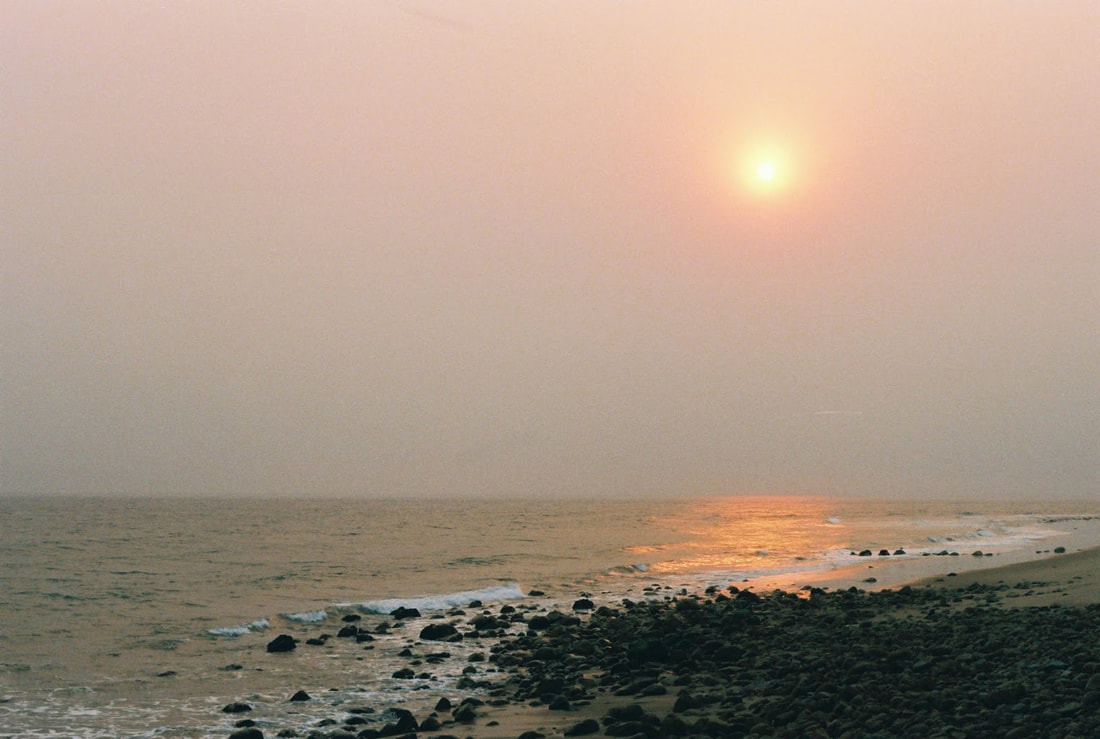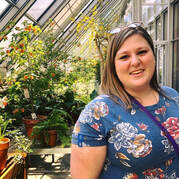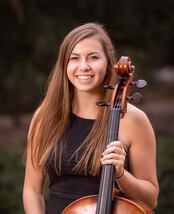|
In March when the Covid-19 pandemic cleared college campuses across the country, many students were left unsure of how they would finish out the semester and keep in contact with their friends. Unfortunately, many students also found themselves suddenly facing unemployment, food insecurity, extreme financial strain, unsafe family or housing conditions, uncertainty surrounding their federal student visas, and even the threat of homelessness. The sudden uncertainty of the situation left a lot of students anxious, and struggling to cope. In such an unfamiliar situation, leaders of all kinds on college campuses tried, and sometimes failed, to know how to communicate effectively and support students accordingly. I had the opportunity to speak with a handful of spiritual leaders at Boston University and to listen to their reflections on where they succeeded and where they wish they would have done better over the last 9 months. Overall, the leaders, a mix of Jewish, Christian, and Muslim chaplains, felt the same kind of blind-sided panic that the students experienced. They received information moments before, if not at the same time, as the students. They didn’t blame the university, understanding that things moved very quickly from hour to hour and even moment to moment during the week that decisions were being made in early March, however, they did feel the nature of the situation made it very difficult to respond to the needs of their students constructively and supportively. [1] Students and faculty were given very few resources and little support to fully grasp and cope with the spiritual, emotional, and sometimes financial, impact of the pandemic. In attempting to communicate logistics effectively, the University often neglected the emotional, mental, financial, and spiritual well-being of the students and the faculty. All parties were left holding a lot of information, but very few tools to integrate the information into their lived reality. Studies on instances of trauma following natural disasters and events of terrorism have shown that religion and spirituality play an important role in helping people cope with difficult and traumatic events. [2] One study on the trauma of the U.S. in the aftermath of 9/11 said that religion and spirituality may offer a framework for adjusting to and contextualizing events and experiences in a way that results in more positive affect after the dust settles. [3] Human beings lean into religious and spiritual affiliations following traumatic experiences in an effort to look for meaning and comfort beyond trauma. Thema Bryant-Davis and Eunice Wong say that people begin to look for the sacred in the midst of trauma recovery because they need to make meaning out of what happened, or what is happening to them. [4] The practices, rituals, actions, or beliefs could be anything that draws a survivor of trauma closer to whatever it is that they hold sacred. [5] Turning to spiritual things is also sometimes encouraged in survivors of trauma or refugees by spiritual leaders or mental health professionals, because it offers a way to turn toward a more positive or holistic view of past experiences. [6] Spiritual care on college campuses in the wake Overall, there seems to be an overarching belief that engaging in a community of faith or in spiritual practices and support systems during and after particularly difficult or traumatic events allows for people to cope with and recover from jarring, emotional experiences. Spiritual care on college campuses in the wake of Covid-19 is, and is going to continue to be, critically important. Anecdotally, the spiritual leaders from BU agreed that currently they are really struggling to connect with students and have limited resources to try to reach students who may be hurting. Students are probably not receiving the spiritual support they may need, and worst of all, they may not know where to look for it if they need it. While I cannot offer the answers or highlight one small thing that will make all the difference, I believe it is important to point out the need and to ask universities how they can support the spiritual well-being of their students when extreme circumstances require drastic changes without notice. [1] Anonymous Interview with Six Boston University Chaplains, November 16, 2020. [2] Leola Dyrud Furman, et. All, “Reflections on Collective Trauma, Faith, and Service Delivery to Victims of Terrorism and Natural Disaster: Insights from Six National Studies,” Social Work and Christianity 43:1 (Spring, 2016), 75-76. [3] Daniel N. McIntosh, Michael J. Poulin, Roxane Cohen Silver, and E. Alison Holman, "The distinct roles of spirituality and religiosity in physical and mental health after collective trauma: a national longitudinal study of responses to the 9/11 attacks," Journal of Behavioral Medicine 34, no. 6 (2011): Gale Academic OneFile. [4] Thema Bryant-Davis, and Eunice C. Wong, "Faith to Move Mountains: Religious Coping, Spirituality, and Interpersonal Trauma Recovery." The American Psychologist 68, no. 8 (2013): 675-676. [5] Bryant-Davis and Wong, “Faith to Move Mountains,” 675-676. [6] Bryant-Davis and Wong, “Faith to Move Mountains,” 679. Further Reading Bryant-Davis, Thema, and Wong, Eunice C. "Faith to Move Mountains: Religious Coping, Spirituality, and Interpersonal Trauma Recovery." The American Psychologist 68, no. 8 (2013): 675-84. Furman, Leola Dyrud, Perry W. Benson, Bernard Moss, Torill Danbolt, Einar Vetvik, and Edward Canda. "Reflections on Collective Trauma, Faith, and Service Delivery to Victims of Terrorism and Natural Disaster: Insights from Six National Studies." Social Work and Christianity 43, no. 1 (Spring, 2016): 74-94. McIntosh, Daniel N., Michael J. Poulin, Roxane Cohen Silver, and E. Alison Holman. "The distinct roles of spirituality and religiosity in physical and mental health after collective trauma: a national longitudinal study of responses to the 9/11 attacks." Journal of Behavioral Medicine 34, no. 6 (2011): 497+. Gale Academic OneFile. Chloe Mclaughlin is a 2nd year Master of Divinity student at the Boston University School of Theology. She is passionate about helping spiritual leaders learn skills in conflict communication and also enjoys writing and reading work in practical theology and leadership. Chloe currently engages in conflict and communication work through BU’s Marsh Chapel and the Boston Theological Interreligious Consortium.
0 Comments
As part of my internship experience with ICTG, I had the opportunity to learn about some of the long-term impacts of the Thomas Fire and 1/9 Debris Flow on the Westmont community. My own experiences during the disasters constituted the heart behind this project. During my first year, when I was new to the Santa Barbara and Montecito communities, the disasters created an opportunity for me to engage in the community and meet my neighbors in ways I never could have imagined. As I dug out a family’s home alongside one of the family members and with fellow Westmont students, my ideas about communities, trauma, and service began to be radically transformed. This project created an opportunity for me to reflect upon and articulate those thoughts and ideas in an organized and systematic manner. Moreover, this project gave me the space to ask new questions that came up for me during the internship, such as: How do you decide who gets to participate in the narrative making following a disaster? How much narrative space do individuals get to take up? Do some individuals get more than others? What position does Westmont in general, and do Westmont students in particular, get to occupy in the narrative following the disasters? What parts of the narrative can they claim? How do you decide who gets to participate in the narrative making following a disaster? How much narrative space do individuals get to take up? Throughout the interviews, individuals consistently reminded me of the diversity of feelings, emotions, and experiences that people have following disasters. Almost every person I interviewed mentioned the importance of recognizing and respecting this diversity. A comment from a student who was not present during the disasters made me think about the challenges that this diversity in experience can create for our understanding of what happened. In an effort to grasp what happened, the student attended and participated in memorial events. Though she learned more about the disasters and some community members’ experience she remarked that she “will never fully understand what happened.” As I reflected on this comment, I realized that no person can fully understand what happened because no person can fully understand the experience of another. The only thing we can fully understand is our own experience in the disaster. However just because we can’t fully understand doesn’t mean we give up and settle for our own perspective. Instead, we hold the knowledge that we will never fully understand in tension with the effort to understand other’s experiences and feelings. We still participate in practices of collective remembrance. We still listen to others stories and recollections. We still share our own experiences of what happened. We remind ourselves that no story is the whole story; no person’s journey is everyone’s journey. We even begin to piece together what we have experienced with what others have experienced, attempting to create a more complete image of what happened. We still participate in practices of collective remembrance. We still listen to others stories and recollections. We still share our own experiences of what happened. This crafting together won’t ever yield a complete understanding of the disasters. Nonetheless, we strive to craft together our perspectives, respecting that each person has a valuable voice and worthy position in the narrative making, though exactly how that voice sounds or exactly how much space that voice takes up will look different from person to person. We continue to seek greater understanding of others and their experiences. In doing so, we affirm the uniqueness and worthiness of each person. Following the destruction of disaster, we get the opportunity to create something new with ourselves, our families, and our communities by sharing our stories, listening to the stories of others, and together creating a narrative that honors each person and each experience. In other words, we get to practice loving our neighbors. Chloe is currently a fourth year student at Westmont College, earning a B.S. in Psychology-Behavioral Neuroscience. She enjoys learning about how resilience and connectedness impact experiences of trauma. Chloe brings her experiences living in Costa Rica and Scotland and studying abroad in Israel-Palestine to her studies and work.
My name is Taylor Mache, and I am thrilled to be interning at ICTG. I am currently a third year psychology major at Westmont College who is also studying Spanish and global studies. I have always had a passion for deep relationships and understanding our creation as relational beings, which eventually sparked my interest in psychology. I wanted to better understand the ways we interact with others, digging into the why and how we behave and think the way we do. As I processed my own relationships, I paused on my relationship with my dad. My dad and I have always had a very natural connection, one where there was a mutual trust and understanding that couldn’t exactly be explained. I have always admired my father for the ways he intentionally strived to have deeper relationships with my brothers and me, especially without having an example of a good earthly father himself. As a Christian, I see how he shaped the way I understood the love of our Heavenly Father which is infinite and whole, in that if my earthly father pursued me and loved me this much, then how much more my Heavenly Father must love and pursue me. It broke my heart to think that children can go without having an earthly example of unconditional love in their lives. Out of this experience my desire to be a marriage and family therapist was born. I hope, ultimately, to gain skills to facilitate environments where couples can learn how to mend bonds where they are strained or broken, or create bonds where they do not currently exist. Trauma often can disrupt, or even break, relational bonds. I am curious to explore how these experiences affect the ways survivors of trauma interact with those they love, and discover more about how collective trauma can bring people together or create even more distance. I am particularly interested in how our faith and spirituality influence trauma recovery, and how spiritual guidance can be integrated into treatment processes. The focus of my research this semester will involve developing more extensive resources in spiritual formation counseling, specifically in providing tools and tips for college students interested in pursuing work in spiritual guidance with persons affected by trauma and disaster. Through research of various sources, including current ICTG materials, peer-reviewed literature, and biblical sources, as well as interviews of spiritual directors, I will curate current understandings of trauma-informed spiritual direction and young adult development in order to devise a tip sheet for college students to access online. I am interested in exploring the ways religion and culture intertwine and overlap to influence trauma response. I hope to integrate trauma-informed spiritual formation and direction resources into my final project that are culturally aware and appropriate for Christian college students. The ways we interact with others and form connections depends largely on our cultural context, including our spiritual background. College students, developmentally, may find themselves naturally at a stage of testing and reconsidering their cultural and spiritual backgrounds, perhaps for the first time. If they happen to encounter traumatic experiences, or are reflecting on traumatic experiences from the past, a spiritual director who is informed on how trauma can affect a person’s development and spiritual formation will provide more helpful facilitation. A person’s responses to trauma can vary greatly based on her or his culturally-influenced spiritual experiences. Therefore, caring for a survivor impacted by trauma, particularly when providing spiritual direction for them, requires a deep understanding of these differences, in order to help in ways that respect and honor the individual, rather than in the ways that hinder healing and restoration. Having awareness of varying cultures, the range of spiritual practices and understandings a survivor may have, and implicit biases on the part of the spiritual director can greatly enhance the way treatment is administered. I am looking forward to exploring these important points in the coming weeks and developing helpful tips for working with college students who have experienced trauma. Taylor is a third year student at Westmont College studying psychology, Spanish, and global studies. She is passionate about our creation as relational beings and learning about how trauma can affect relationships, especially in different cultural experiences. She is also interested in the role that faith plays in recovery and understanding trauma and disaster. A Chicago native, she loves spending as much time as she can in nature and tuning in to the wonders of creation, whether hiking in the mountains or going for an ocean swim.
I first began learning about trauma during winter break after my first semester of college. My father had gifted me The Body Keeps the Score by Bessel van der Kolk. I read the stories of ordinary individuals who had experienced unspeakable horror and pain, who felt suffering not only in their minds, but in their brains and bodies, too. I came across the life's work of a man who sought to heal the whole individual and shared his own journey of pain, healing, and discovery. I learned about the mechanisms of trauma, the development of DSM diagnoses, and the healing power of EMDR. However, what I remember most about reading this book was the deep, but quiet voice that arose in me and said, "this work--work that considers the whole being and offers agency and healing--is something I want to do, too!" Though now I can't remember if my interest in trauma preceded the reading of this book, I do know that the stories and knowledge I encountered transformed my understanding of the body, mind, and brain, propelled me into a psychology major, and informed my vocational goals and desires. Reading that book brought me here to the Institute for Collective Trauma and Growth. I first uncovered my interests in trauma and the human capacity to grow and heal in the pages of a book; yet, I envision that my interests will come alive and take shape during this internship. Though I have come with specific questions, I am hopeful that this experience will sharpen them and even bring forth new ones. While I am interested in certain areas of trauma scholarship, I anticipate discovering fresh areas of pursuit within the field. Through my experiences as an intern, I hope to deepen my understanding of trauma and bear witness to the resilience of communities and individuals. The questions I seek to answer include: How do communities show long-term effects of collective traumas? How do recollections of the trauma get passed down through generations and retold by individuals and in groups? How do traumatic experiences impact the learning environments of children? What are the most effective community models of post-traumatic healing? How do recollections of the trauma get passed down through generations and retold by individuals and in groups? How do traumatic experiences impact the learning environments of children? What are the most effective community models of post-traumatic healing? I pursued this internship because I saw the opportunity to develop and deepen my interests in trauma and post-traumatic growth through the Institute. I also sought out this internship because I believe that it will help me define and clarify my vocational goals. I see this as an opportunity to try on a new role and see how it fits, to feel how it feels to work in traumatized communities, foster resilience and healing, and engage in trauma-informed work. What do I like about working in communities that have experienced trauma? What is challenging about working in these communities? Is this work life-giving to me? By engaging in this internship, I imagine that all of these questions--and even ones I haven’t known to ask yet--will be answered. Throughout the internship, I expect to experience both failure and affirmation in my giftings. I desire to witness the difficulty that comes with working alongside traumatized people, but also the joy and hope that ensues when individuals and communities are able to grow and heal. I am hopeful that this internship will confirm that quiet voice I heard years ago that said, “this is something I want to do.” And even if this experience does not confirm that little voice, I am hopeful that through this internship I will be able to further discern my calling and role in the Kingdom of God. Chloe is currently a fourth year student at Westmont College, earning a B.S. in Psychology-Behavioral Neuroscience. She enjoys learning about how resilience and connectedness impact experiences of trauma. Chloe brings her experiences living in Costa Rica and Scotland and studying abroad in Israel-Palestine to her studies and work.
This is the time to be slow, Lie low to the wall Until the bitter weather passes. Try, as best you can, not to let The wire brush of doubt Scrape from your heart All sense of yourself And your hesitant light. If you remain generous, Time will come good; And you will find your feet Again on fresh pastures of promise, Where the air will be kind And blushed with beginning. -John O'Donohue This poem, by the fantastically eloquent John O’Donohue, always soothes my mind during times of stress, but have recently found it especially applicable in the midst of the social distancing precautions taken to slow the rise of COVID-19. A humble reminder to be slow and generous because, although life can be traumatic, humans have the ability to heal. In my last four years of college I have become keenly aware of the ways in which life can be traumatic. Whether it is fires, floods, kidnappings, riots,or violent crimes I felt I was constantly trauma adjacent, causing my brain to go into empathy overload. While part of this knowledge can be attributed to the rise of media and globalized news, many of these tragedies I have witnessed in my own backyard. In just the past 3 years, there was the canyon fire, causing evacuations in my hometown only a month before I found myself evacuating from the Tomas fire, the following Montecito debris flow, or the mass shootings happening in the area of the world I call home. Now, we find ourselves in the middle of a global pandemic that is shifting the realities of everyday life – whether that looks like isolation, working to the point of exhaustion, being laid off, or going through significant life events (like graduating college) without the expected celebration. ...shifting the realities of everyday life – whether that looks like isolation, working to the point of exhaustion, being laid off, or going through significant life events (like graduating college) without the expected celebration. I must admit, this is actually the second internship I’ve had during the course of my Practicum class. For the first 3 months, I was working with the Santa Barbara Rescue Mission as a Homeless Guest Services Intern where I participated in the everyday activities that aimed to create a comfortable and safe environment for our guests. I thoroughly enjoyed getting to know the guests, their stories, and the quirks of the daily routine at SBRM. However, when COVID-19 protocols started to crack down, I made the difficult decision to step away from my position at SBRM, as I was not an essential staff member and didn’t want to continually put the guests nor myself in more risk than necessary. However, that doesn’t negate feelings of anxiety, loneliness, and yearning for what will not be. With only a month left, I felt uprooted not only from a professional opportunity I loved, but also being a college senior, from many aspects of social and academic closure. This is not to say I am not incredibly fortunate during this time. I feel grateful every morning I wake up during this lockdown for my health, still having a secure job at a local bakery, and the abundant resources I have to stay comfortable during this stressful time. However, that doesn’t negate feelings of anxiety, loneliness, and yearning for what will not be. I have observed how unexpected events bring grief, trauma, and unhealable wounds. But I have also witnessed unimaginable strength, courage, and love being cultivated in the aftermath – whole communities rising from the ashes.  Miramar Beach at the height of the Thomas Fire (December 2017) When I got the email from my professor urging me to finish out my time in practicum at ICTG, I was immediately excited by the opportunity to better understand how communities react to trauma and unexpected events. I have observed unexpected events bring grief, trauma, and unhealable wounds. But I have also witnessed unimaginable strength, courage, and love being cultivated in the aftermath – whole communities rising from the ashes. How is it there are such diverse and powerful reactions to the same trauma? This resilience, and the healing that can be formed through community, has simultaneously intrigued and puzzled me, the main reasons I was drawn to study psychology. In the midst of this unprecedented world health crisis, I hope to observe how this happens on both a global and local scale. While my time at ICTG will be brief, I will seek to find a deeper understanding of how we can respond to trauma as a unified community when we are physically separated – how we can, together, make time come good again. Ally Flanagan is in her fourth year at Westmont College, earning a B.A. in Psychology and loves learning about the ways people build relationships and interact with each other, as well as how best to support those who have experienced trauma. In her free time, Ally enjoys playing soccer and taking her dogs to the beach.
|
�
ICTG BLOGFrom 2012-2020, this blog space explored the changing landscape of long-term care. This website serves as a historical mark of work the Institute conducted prior to 2022. This website is no longer updated.
Archives
December 2020
Categories
All
|






 RSS Feed
RSS Feed
